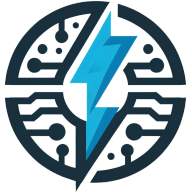Welcome to a deep dive into the transformative role of Artificial Intelligence (AI) in the realm of electrical engineering. This blog post will explore the various ways AI is revolutionizing the field, from design and simulation to automation and predictive maintenance. As we delve into the topic, we'll uncover the potential of AI to reshape the future of electrical engineering and the challenges it may bring along.
AI in Electrical Design and Simulation
The application of AI in electrical design and simulation is a game-changer. It's not just about automating routine tasks; AI is providing electrical engineers with powerful tools to optimize designs and perform complex simulations.
Machine learning algorithms can analyze vast amounts of data from previous designs and simulations. They can then use this information to suggest improvements or predict potential issues. This process significantly reduces the time and effort required in the design phase, allowing engineers to focus on innovation and problem-solving.
Moreover, AI can handle multi-objective optimization problems that are often too complex for traditional methods. It can simultaneously consider multiple design parameters and constraints, finding the optimal solution in a fraction of the time.
AI and Automation in Electrical Engineering
Automation is another area where AI is making a significant impact on electrical engineering. AI-driven automation systems are capable of managing complex electrical systems, from power distribution networks to industrial control systems.
These systems can monitor and control electrical parameters in real-time, ensuring optimal performance and energy efficiency. They can also detect anomalies and take corrective actions, preventing potential failures and reducing downtime.
Furthermore, AI can automate the process of fault detection and diagnosis in electrical systems. It can analyze data from sensors and historical records to identify patterns that indicate potential faults. This capability not only improves reliability but also extends the lifespan of electrical equipment.
AI in Predictive Maintenance
Predictive maintenance is another area where AI is proving to be invaluable. By analyzing data from sensors and historical maintenance records, AI can predict when a piece of equipment is likely to fail. This allows engineers to schedule maintenance activities proactively, reducing downtime and maintenance costs.
AI can also provide insights into the root causes of equipment failures. It can analyze complex relationships between different variables, identifying patterns that humans might overlook. This information can help engineers improve the design and operation of electrical systems, further enhancing their reliability and efficiency.
The Future of AI in Electrical Engineering
The future of AI in electrical engineering looks promising. As AI technologies continue to evolve, they will provide even more powerful tools for electrical engineers.
For instance, AI could play a crucial role in the design and operation of smart grids. These are electrical grids that use digital technology to manage the generation, distribution, and consumption of electricity more efficiently. AI could help optimize the operation of these grids, balancing supply and demand in real-time, and integrating renewable energy sources.
Moreover, the advent of quantum computing could take AI to a whole new level. Quantum computers could solve complex optimization problems much faster than traditional computers, further enhancing the capabilities of AI in electrical engineering.
Challenges and Ethical Considerations
Despite its potential, the integration of AI in electrical engineering is not without challenges. One of the main issues is the lack of transparency in AI algorithms. These algorithms often act as "black boxes," making it difficult to understand how they arrive at a particular decision. This lack of transparency can be problematic in critical applications where safety is paramount.
Moreover, the use of AI raises several ethical considerations. For instance, as AI takes over more tasks, there is a risk of job displacement. It's crucial to ensure that the transition to AI-driven systems is managed in a way that minimizes social disruption.
Preparing for an AI-Driven Future
To harness the potential of AI, electrical engineers need to equip themselves with the necessary skills. This includes not only technical skills in AI and machine learning but also a deep understanding of the ethical and societal implications of these technologies.
Universities and professional bodies are already offering courses and certifications in AI for electrical engineers. These programs provide a solid foundation in AI technologies, along with practical experience in applying these technologies in electrical engineering.
In conclusion, AI is set to revolutionize electrical engineering. However, it's essential to navigate this transition with care, considering both the opportunities and challenges it presents.
Navigating the AI Revolution in Electrical Engineering
As we've seen, AI is reshaping the landscape of electrical engineering, offering a plethora of opportunities for innovation and efficiency. However, this transition also brings challenges and ethical considerations that need careful navigation. By equipping themselves with the necessary skills and knowledge, electrical engineers can harness the power of AI to drive the future of their field.

